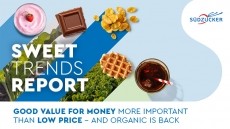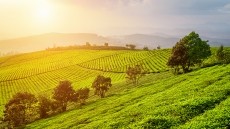Smart sustainability: Save money by saving water, says report

The report, entitled Smart Water: A prosperous future for the food and drink supply chain, is a practical resource for food and drink manufacturers to identify how to improve their water management and locate available tools that can help them achieve this.
The food industry is the most water-intensive business in the world but, as discussed at last year's COP21 summit on climate change, its status as 'villain' is set to turn to ‘victim’ unless it starts to do business in a more sustainable manner.
Rethinking the way it uses water is a crucial part of this, says the report which was compiled by business-led charity, Business in the Community (BITC).
Complex water footprints
The charity estimates that for food manufacturers, cleaning processing equipment, plants and food products accounts for up to 70% of a factory’s usage, generating significant wastewater. Other figures from not-for-profit sustainability coalition, Ceres, estimate that irrigating crops and raising animals consumes roughly 70 % of the world’s freshwater.
But the water footprint of the British food and drink sector is highly complex, it added, with over 50% of the country’s water consumption occurs further down what are often highly complex supply chains, ‘embedded’ in imported products.
In addition to protecting a firm’s reputation and reassuring investors, BITC says good water management can significantly reduce industry costs – British companies that signed up to the Federation House Commitment collectively saved £2 million (€2.6m) through a range of initiatives in 2014. Businesses also have a responsibility to use natural resources in a sustainable way, it says.
Writing in the report, chairman and CEO of Nestlé UK & Ireland, Fiona Kendrick, said: “We are all facing this urgent challenge and need to find ways in which we can not only drive efficient use and effective treatment of our water and waste water, but work collaboratively at a catchment level to implement interventions where they can be most efficient and sustainable.”
Six steps to success
The first step is to establish a detailed understanding of where in the value chain most water is used, where is sourced, what its impact is and how this could be improved by identifying water-related opportunities across the value chain.
Next, companies must create a plan of action as part of a coherent water policy which prioritises areas of greatest potential impact. This should include time-bound targets and monitoring procedures. The third step involves investing in new production processes and technologies to use less water, identifying alternative and renewable sources and engaging employees.
Companies should then look to establish these steps in the supply chain by informing agricultural partners and key suppliers and providing incentives for them to develop sustainable water management practices, such as procurement standards, supplier scorecards, premium prices and longer terms contracts.
Finally companies should prepare for periods of flooding and water shortages, and collaborate on sustainable practices both at a catchment level and through government schemes.
Acting already
The report also highlights ways in which industry is already engaging with the issue. Kellogg’s, for instance, has used the global water tool of the World Business Council for Sustainable Development (WBCSD) to assess risks at it facilities and evaluate key ingredient supplies in relation to global water stress maps and renewable water supply projections.
Meanwhile UK private label retailer, Marks & Spencer, has worked with WWF to mitigate water risks across its business.
Britain’s biggest food manufacturer 2 Sisters successfully managed to reduce water use and effluent production in its potato processing plant by over a quarter (25.6%) by installing a sub-metering system. “Everything we do in food is totally reliant on water. We need to treat water based on its true value, arguably the most valuable commodity to the food industry as without it everything else simply stops,” said the company’s sustainability director, Andrew Edlin.
According to Kendrick, Nestlé has also reduced its absolute water usage by 45% since 2006 and has set a target of 50% by 2020.
The report was partly funded by the UK's Department for Environment, Food and Rural Affairs (DEFRA).




























